A little while ago I wrote three articles about to how to become an ‘independent boater’. These articles focused on three smaller goals you should achieve in order to move from club paddling to peer paddling. There is one key ingredient that I did not talk about in detail however and that is getting professional coaching. This I felt deserved to be discussed in a separate piece and in more depth.
I want to discuss the value of coaching and how to get the most out of having coaching. I have made the conscious decision not to name any kayaking coaches in this article. A wise friend once said ‘different coaches work for different people and at different times in your life, different coaches will work for you.’ I thought that this was such an accurate statement and it has really stuck with me. Everybody will have different coaching styles that they prefer and that is fantastic. We also are incredibly lucky in the UK to have a huge wealth of talent in our white water coaches and it would be unfair to single out just one or two in this article.
Why get coaching?
In my early paddling days I recall a conversation I had with a University friend who does freestyle kayaking. He was talking about having a week of coaching over the Summer. ‘Why are you getting coaching?’ I asked in my naivety, ‘You are so good already.’ ‘Because I want to get better’ was his answer. And it clicked for me. People who got coaching did so because they wanted to improve, regardless of their starting ability. Sometimes if you are surrounded by better paddlers you can forget how much these people are actually coaching you, even if you do not realise it.

Photo: Tom Clare
My background
I want to shed some light on my background at this point. I worked part time as a gymnastics coach for 8 years whilst at school and University. My dad is an athletics coach and if I go home I often seem to be pulled into ‘helping out’ or even worse ‘taking part’ with the athletes. Whilst these two sports are very different from kayaking, coaching goes far beyond the sport you are focusing on. A good coach can connect with their students/clients and help them to achieve their goals by highlighting the steps they did not even know they had to take. I’ve had a lot of time observing coaching sessions both in these two sports and also in kayaking from friends who are coaches. I’ve noticed some patterns in the behaviour of people who make the most out of their coaching sessions.
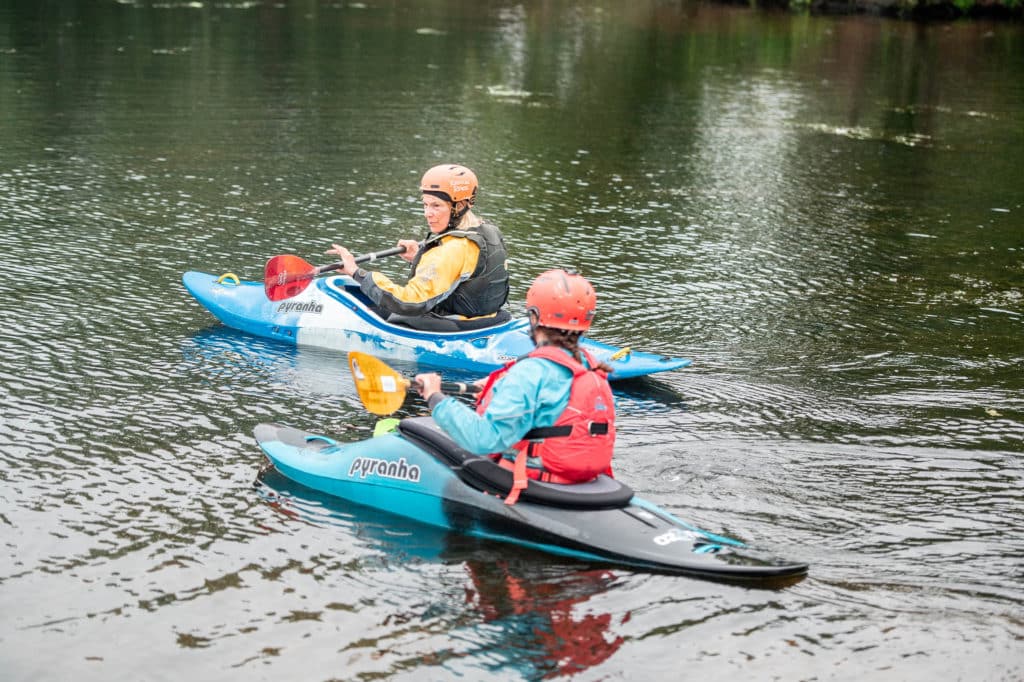
My own experiences of being coached in kayaking is more limited. I am not currently in a position in which I can afford to invest in regular weekly or even monthly coaching sessions. Therefore the professional coaching I have had I have chosen very carefully and tried to make the most of these experiences. I see coaching as a catalyst in helping me to progress. I want to have something to take away at the end of each coaching experience that I can work on in my own time.
Why coaching benefits me (and anyone like me)
The reason I think that coaching is so valuable is that we do not always know what it is that we need to do in order to improve. I personally do not find kayaking instinctive and I struggle to work out on my own what it is that I am doing wrong or what steps I need to take to do it right. The value of having an expert analyse you in a non judgmental situation and really break down what you are doing is huge.
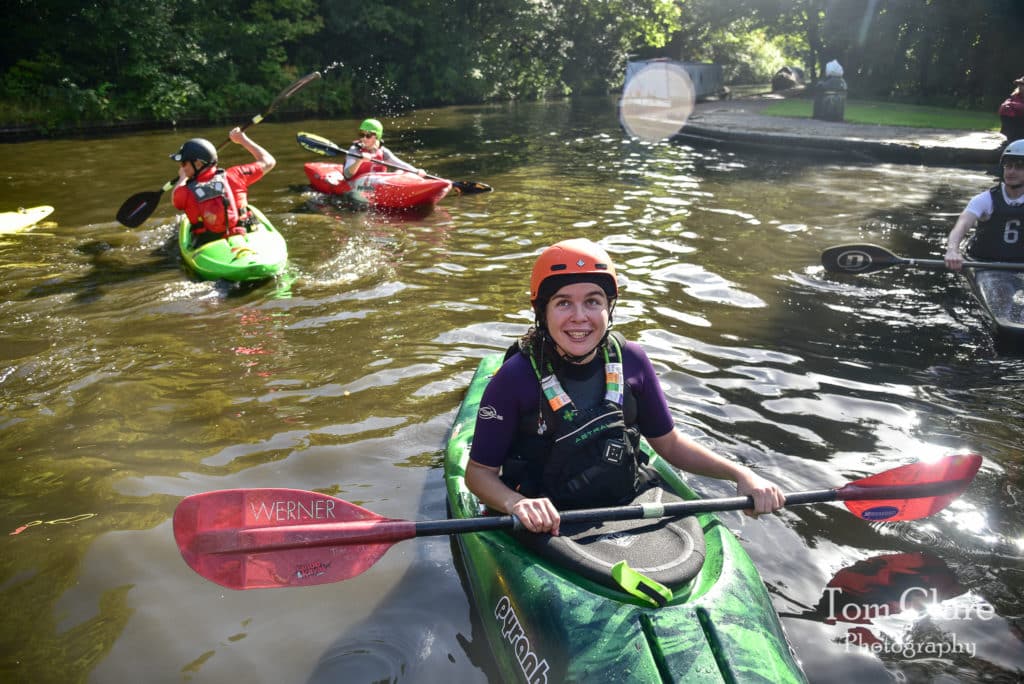
Photo: Tom Clare
Once you’ve broken down what you are doing and you have identified something that you want to improve, the only way is to practice it. If you do this, then you will grow. A good idea after a coaching session is to write down some of the pointers that you have been given. Then when you next get on the water, try to keep those points in your mind. It is hard to embed new skills but if you keep at it then your kayaking will slowly transform. New skills can not be acquired in just one session but instead must be embedded over time.
This is why I really do think it is important to practice those skills on your own. If you only paddle in your coached sessions, you will never have time to consolidate what you have previously been taught. You may not always ‘get it’ straight away and the practice does not guarantee that you will be perfect. What it does though is mean that you may make small improvements. Small improvements over time add up and this is worth remembering.
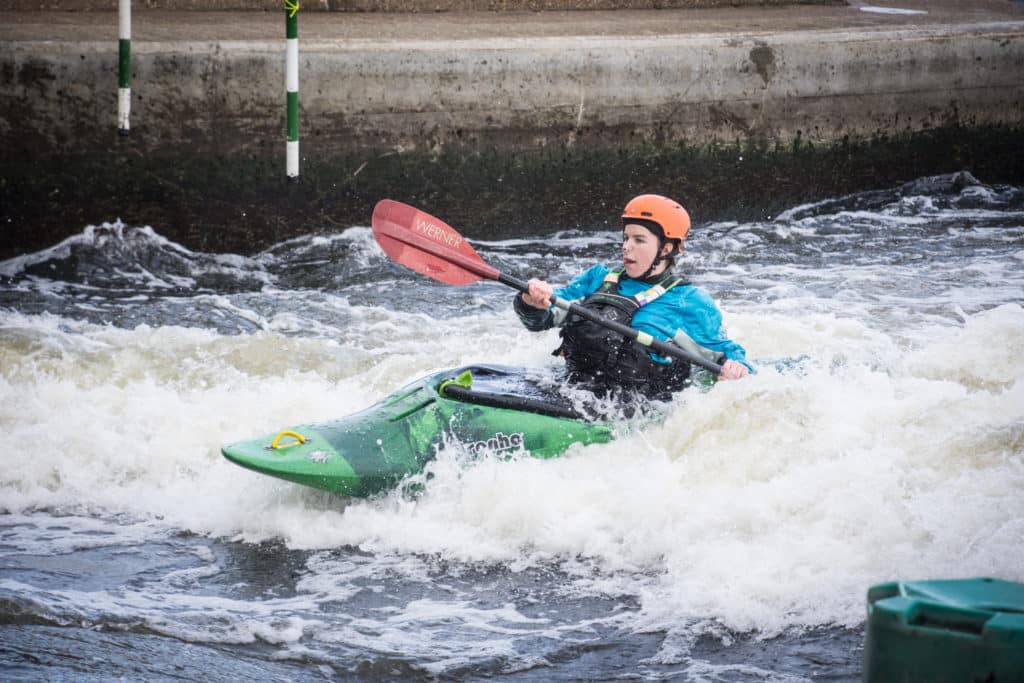
Photo: Jack Grace
Personally I am happy to be coached on white water which is well within my abilities so that the focus is on improving my core skills. If you chose to invest in coaching which is based on leading you down rivers that are really pushing your abilities then you have the risk that you will always remain dependent on others. Friends of mine seem keen on this style of coaching as it means they get to experience rivers they otherwise wouldn’t. For myself, I want to grow as a paddler so I am equipped to take on those more challenging rivers independently, even if that means not immediately. However each to their own of course and this is why different coaches work for different people!
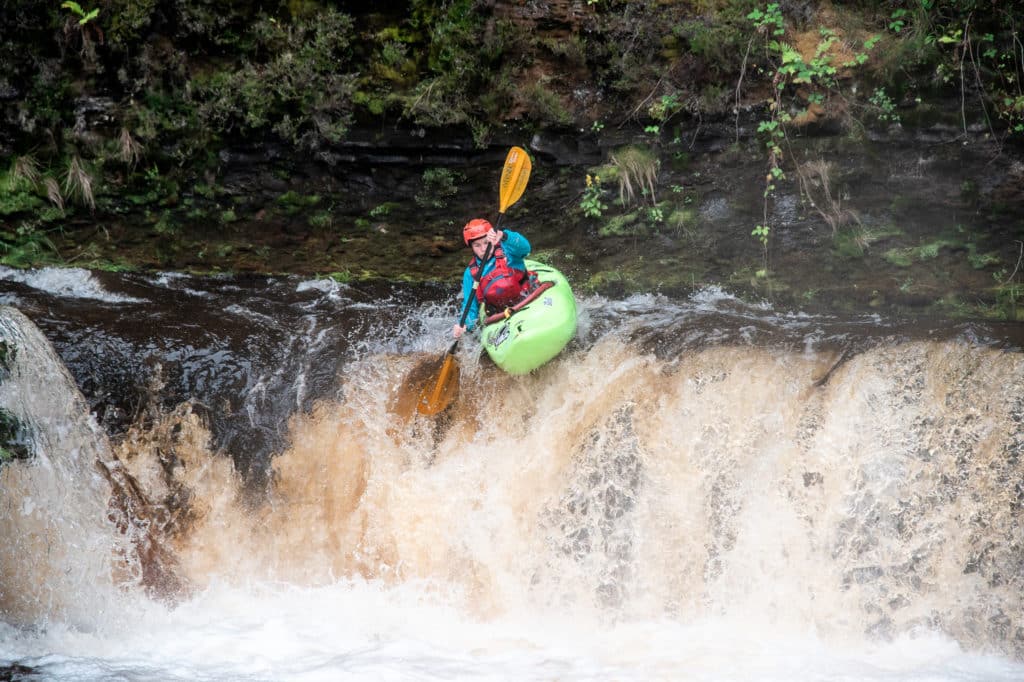
Coaching leads to confidence
My final point I want to make is about confidence, particularly in this current climate. Coaching is more than just working on your physical skills, it is also about working on your mind game. In the last 6 months, the world has changed dramatically. Many people have had their usual paddling routines disrupted and may be feeling quite rusty. I have had so many people share with me that their paddling confidence has been knocked by having prolonged time off the water. If you are struggling with your mindset when it comes to paddling, I would really recommend investing in some coaching.
Having that reassurance that a professional is there to support you can make all the difference. We all know that paddling is as much a mental game as it is a physical one. The coaching I have had has had such an impact on my confidence and this itself has had huge benefits for my paddling. Even just having an expert to share your fears with and have them help you to break those down is so valuable. Improving your confidence also means you will increase your enjoyment of paddling as well. Which is of course the reason we all started in the first place!
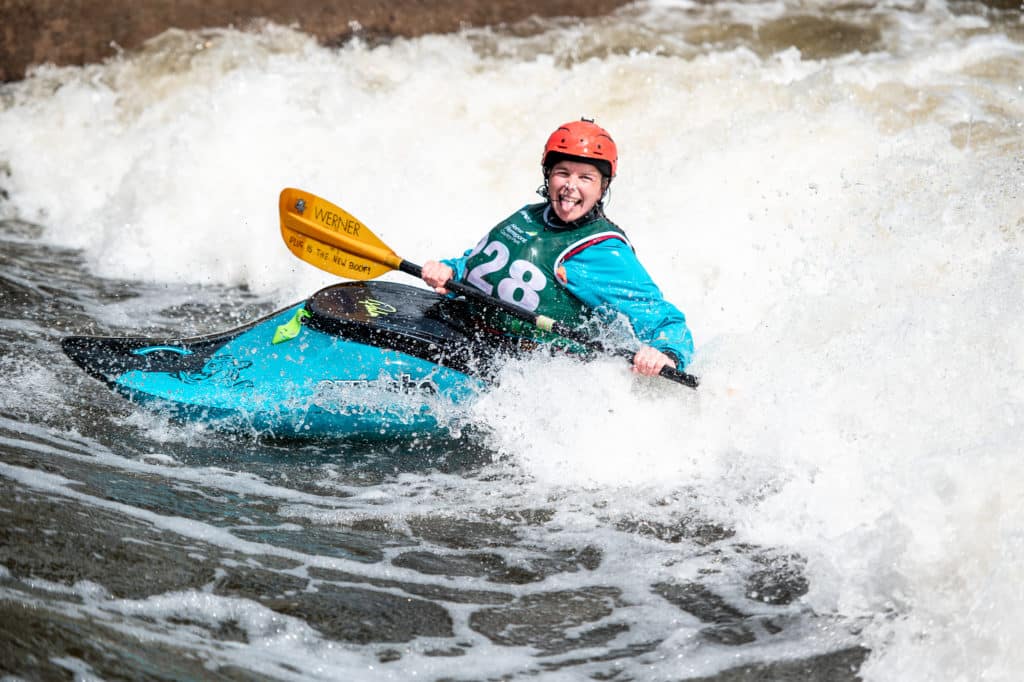
Photo: Tom Clare
Whilst I have not mentioned any individuals in this article, I am lucky enough to know many talented coaches in the UK. If you are wanting to get some coaching and are not sure where to go, please do reach out. I am happy to help direct you towards someone who can meet your coaching needs.
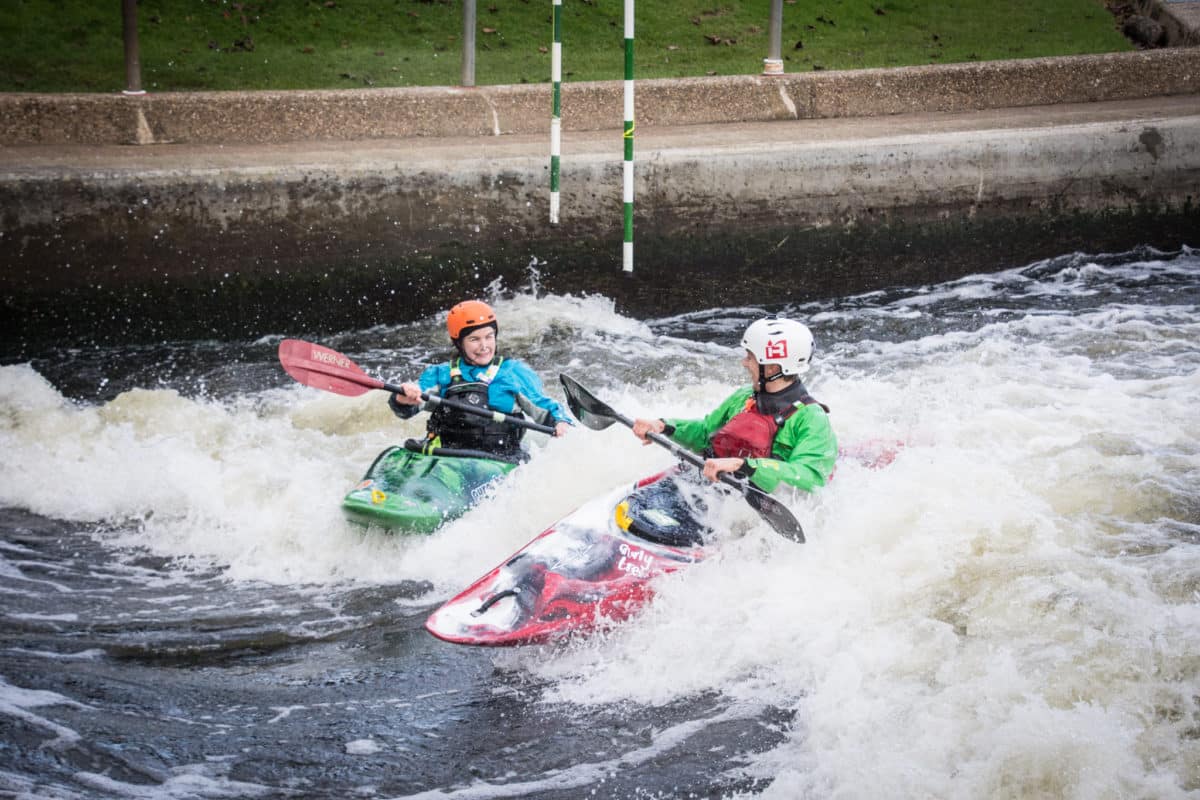
2 replies on “The Value of Coaching”
Totally and utterly agree, started kayaking with a club 5 years ago.
Sea,ww, rivers and canals on camping trips and bunkhouses absolutely love it. Have made so many good friends who I paddle with every week.
Cannot believe what I have done on ww and paddling 30 miles to and around the Needles in a day.
All that at nearly 70 years old having had mental health problems for many years.
My proudest achievement, being a very active Instructor.
Could not have done it without the kayaking community and my club.
I owe a lot.
Hi Brian, wow that sounds like you fit in even more time on the water than I do! How wonderful that you are able to get out so much with your friends and also share that passion with others through being an instructor. Instructing others in kayaking is one of my long term aspirations. I am very happy for you that you found this sport!